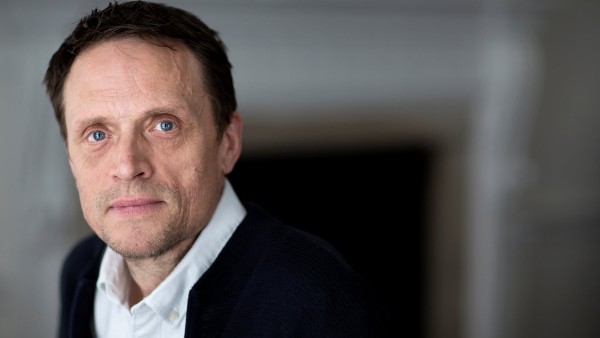Of the many unflattering comments I received on school reports one of the most memorable was: ‘O Levels are for the mediocre and accordingly he passed’. An echoing phrase came to mind when listening to the coverage of yesterday’s by-election: ‘politics is for those seeking to recreate the past, accordingly UKIP won’.
As regular readers will know, the RSA has a new worldview (if you like pictures here’s the animated version). We call it the Power to Create and it is necessary for my argument to recap its main points.
…..Today we have unprecedented opportunity to fulfil the ideal of every citizen living a creative life. This is possible because citizens are becoming better educated and more cosmopolitan and because they increasingly aspire to greater autonomy and self- expression. It is possible also because public, private and civic organisations are beginning to understand that their survival and success depends on tapping into the creativity of citizens, clients and customers. Both of these processes are hugely facilitated by technology, particularly the social web; the greatest accelerator of mass human creativity in world history.
But there are barriers too: Inequality and elitism which deny people the tools of autonomy, meaning and creativity – basic financial assets, data and intellectual property, social networks; the logic of educational institutions and hierarchical organisations which too often treat creativity as the exclusive domain of the few; and a politico-technocratic model which sees citizens as the objects not the subjects of social change.
I try to talk about the Power to Create in any speech I give. While I find it goes down pretty well with young people and the open minded, progressive folk who make up the RSA Fellowship I observe another response when I am speaking to politicians or those who work for them in local or national government.
Whether or not they agree they don’t see the RSA’s analysis as relevant. This may be partly because the critique of hierarchical organisations and traditional policy making is too radical, but there is a stronger source of resistance: Our political class and those who serve them have largely given up talking about the future.
As a former Labour representative and official I find this particularly depressing. Whenever Labour wins power – 1945, 1964, 1997 – it is in part because it has articulated a story of the possibilities ahead. It has described an exciting future and has successfully argued that social democratic values and methods are best placed to seize the opportunities (and address the threats) of that future. Yet today’s Labour Party seems remarkably incurious and unenthusiastic about the 21st century and the deep trends in technology and in human capability and aspiration that could define that century. Tellingly, the most developed critique of Miliband’s direction comes not from future gazers but in the nostalgic nostrums of ‘blue Labour’. (The craven abandonment of progressivism by mainstream and reforming Conservatives is powerfully condemned by Philip Collins in today’s Times).
This is not an argument for blind optimism. From Vladimir Putin to antibiotic resistance, from climate change to the polarising tendencies of financial capitalism, there are many things to worry about, many things we need strong leadership to help us tackle. But you don’t inspire a team only by talking about the fear of defeat. It is through painting a vivid picture of possibility that we gird people’s loins for the hard choices necessary to make that future possible.
As any strategist worth her salt knows, the most important skill in politics is defining the battleground. Most people are uninterested and unaware of policy – except when it goes badly wrong. What matters much more is who defines the problem and thus steals a march in claiming to have the solution. But if the problem is defined as the modern world the winners are those who seem most determined to abandon it.
While politicians are often rather vague about technology and out of touch with the young, I have never known a political class so uninterested in the medium term future as the current crop. Sure, politicians occasionally visit silicon roundabout and genuflect to the billionaire internet whizz kids, but this is tourism not proper exploration or analysis.
And so politics, rather than a fight for that future, is fought on a different terrain – a battle to recreate the past, a past moreover that never really existed.
Who knows how successful UKIP will be in the next election, but if politics continues to descend into a nostalgia competition all bets, indeed, are off.
Related articles
-
The levelling up conundrum
Al Mathers Anthony Painter
How can the government tackle the UK's chronic and enduring regional inequalities? We explore three plausible areas of focus for levelling up: economic development, social cohesion, and community power and identity.
-
Hierarchy: can’t live without it, can we live with it?
Matthew Taylor
In the ninth of a series of posts about ‘coordination theory’ - a set of ideas about human motivation, organisational and social change - the form of 'hierarchy' is analysed. Hierarchy is a form which we seem in equal parts to resent and to need.
-
Why a long-term view should be at the heart of public services
Ian Burbidge
Decisions made today shape the lives of future generations. It is vital we take a long-term perspective when it comes to planning public services.




Join the discussion
Comments
Please login to post a comment or reply
Don't have an account? Click here to register.
"Whenever Labour wins power – 1945, 1964, 1997 – it is in part because it has articulated a story of the possibilities ahead."
The delusion of a professional politician. Far more likely is that the majority of the voters just got fed up with the previous government and thought 'the other lot' might do better.
We have now got to the situation where all the main parties are identical, pro-EU, pro-immigration and self-loathing. None of you has a 'vision' because fundamentally you are all pedlars of envy, hatred and destruction without a shred of empathy for your 'fellow man' whom you despise.
you self obsessed middle-class prick - you are a dinosaur, the world has changed.
I've been writing on and off for about 10 years now about the "learned helplessness" inculcated by the post-Hayekian ideology that most of our elites subscribe to. Key to this is a complete surrender of any agency regarding the future. I done some experiments around changing this, but it's all at an early stage. Very interested in connecting with others who want to work on this problem.